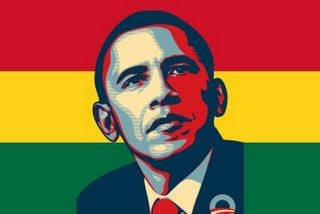“A warming planet will spread disease, shrink water resources, and deplete crops, creating conditions that produce more famine and more conflict,”
said President Barack Obama in Accra, Ghana, on his first trip to sub-Saharan Africa. “All of us–particularly the developed world–have a responsibility to slow these trends–through mitigation, and by changing the way that we use energy. But we can also work with Africans to turn this crisis into opportunity,” he went on to say.
The United Kingdom’s Department for International Development (DFID) released “
Eliminating World Poverty: Building Our Common Future,” a white paper setting its goals for poverty alleviation and sustainable development, including improving climate change adaptation and reproductive health services in developing countries.
In Foreign Policy, Richard Cincotta compares Iran’s youth bulge and democratic reform movement with the experience of China 20 years ago, concluding that the conservative government’s ruthless response will impede the development of durable liberal democracy.
The Natural Resources Defense Council reports that global warming is exacerbating the spread of mosquito-borne dengue fever in the Americas. Harvard’s Dr. Paul Epstein recently discussed similar incidences of climate change-related disease proliferation at the Wilson Center.
In “Well Oiled: Oil and Human Rights in Equatorial Guinea,” Human Rights Watch “details how the dictatorship under President Teodoro Obiang Nguema Mbasogo has used an oil boom to entrench and enrich itself further at the expense of the country’s people.”

 A Publication of the Stimson Center.
A Publication of the Stimson Center.




